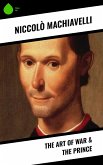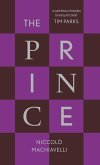In "The Prince," Niccolò Machiavelli presents a foundational text in political philosophy that explores the pragmatic mechanisms of power and statecraft in Renaissance Italy. Written in a concise, yet incisive style, the book is both a manual for rulers and a commentary on the tumultuous political landscape of the period. Machiavelli diverges from the idealistic notions of governance, emphasizing the often harsh realities of political life, shrewdly advising leaders on the necessity of cunning, ruthlessness, and adaptability to maintain power. The work's context in the aftermath of the Italian city-states' instability provides a rich backdrop for its enduring themes of authority and morality. Niccolò Machiavelli, a diplomat and philosopher from Florence, articulated his views on power after witnessing firsthand the dramatic shifts in political regimes and the constant warfare that plagued Italy in the early 16th century. His experiences in political service endowed him with a deep understanding of statecraft, which he meticulously transcribed into "The Prince." Machiavelli's writings reflect his commitment to realism over idealism, seeking to aid contemporary rulers in navigating the complexities of governance. "The Prince" is essential reading for anyone interested in political theory, ethics, or history. Its provocative ideas challenge readers to reflect on the nature of power, leadership, and morality. With its timeless insights, Machiavelli's work continues to resonate, offering valuable lessons for modern political leaders and scholars alike who seek to understand the delicate balance of authority and human nature.
Dieser Download kann aus rechtlichen Gründen nur mit Rechnungsadresse in A, B, BG, CY, CZ, D, DK, EW, E, FIN, F, GR, HR, H, IRL, I, LT, L, LR, M, NL, PL, P, R, S, SLO, SK ausgeliefert werden.









